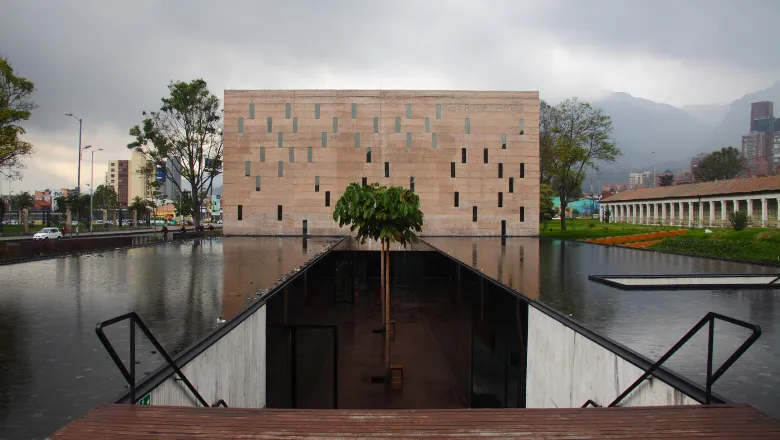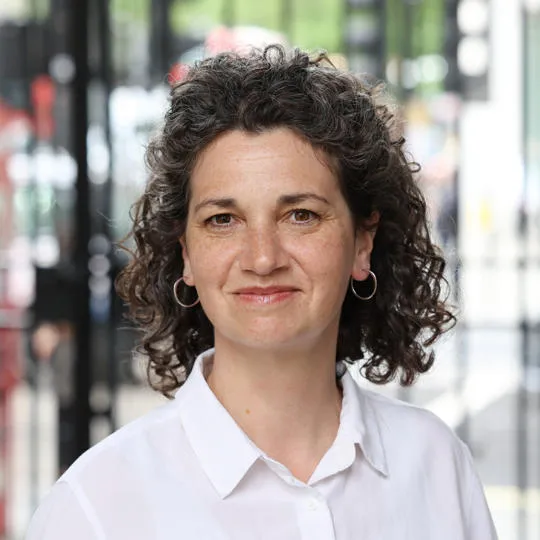Doing Solidarity
This International Solidarity Action Research Network panel event welcomes three experts to explore representations of doing solidarity, with discussion of their own research in this area.
Ricardo Velasco Trujillo, “Building Solidarities and Transforming Institutions with Fabrics: Activism and Sewing Practices in Colombia’s Center for Memory, Peace and Reconciliation”
Ricardo Velasco Trujillo is a social documentarian and Latin American cultural studies scholar with more than 10 years of experience documenting memorialization practices and micro-scale movements for reparation and historical redress among Afro-descendant and refugee communities in Colombia. His work as a social documentarian has also encompassed the experiences and patterns of forced migration and human rights violations committed against rural black communities in the border region between Colombia and Panama. He uses audiovisual and new digital media as tools for making his work publicly accessible, and for the dissemination of the struggles and ways of knowing of the communities that contribute to his research. He is author of the testimonial documentary “After the Crossfire: Memories of Violence and Displacement” (2014), which brings to light the effects of armed conflict for rural black communities in Colombia’s remote north Pacific coast region.
Hande Gurses, “Recipes for Survival: Solidarity in the Aftermath of Gezi Park”
Hande Gurses (PhD, University College London, 2013), originally from Istanbul, is a scholar of comparative literature. Her primary research interests include contemporary world literature, cosmopolitanism, ecocriticism and critical animal studies. She is also interested in inclusive pedagogies and contemplative practices in higher education, and has taught courses on international short stories, migration, dystopian literatures and ecocriticism. Most recently, she co-edited a volume on ecocritical approaches to contemporary Turkish literature titled Animals, Plants, and Landscapes: An Ecology of Turkish Literature and Film (Routledge Press, 2019). Currently, she is working on a book manuscript titled Reframing Bridges and Borders in the Fictions of Orhan Pamuk under contract with Lexington Books. In her book, she focuses on the imagery of the bridge in the construction and representation of distinct identity categories. Her second book project — tentatively titled Beasts of the Nation: Animals, Authority, and Citizenship — explores the representation of animals in nation-building narratives.
Crystal Bartolovich, “Of Tables and Mappings: Figures of Solidarity and How They Work”
Crystal Bartolovich, who does not usually refer to herself in the third person, grew up in rural Ohio where she read all of the books in the tiny local public library, including a remarkable number of volumes on animal husbandry and agronomy, before leaving home at 12 for a convent boarding school. While there, her already considerable habits of quiet contemplation were certainly refined, but, happily, she was also introduced to the pleasures of intellectual—and political—community, since her new school was a hotbed of Liberation Theology. When her parents vetoed her post-graduation plan to join a commune and devote her youthful energies to radical politics, she reluctantly headed off to college instead-- the first woman in her large extended family to do so. To her astonishment, once enrolled, she never left the university: in the fullness of time, she wrote a dissertation on the relation between pastoral poetry and changes in farming practices and landholding in early modern England as agrarian capitalism emerged (a project for which her quirky childhood experiences and reading came in handy). Since she earned her PhD in 1993 with that dissertation, she has been awarded research fellowships at the University of Pennsylvania, Brown, and the Folger Shakespeare Library, and published over 30 essays on topics ranging from early modern literature and culture to Marxist theory and the politics of globalization, in venues such as Shakespeare Studies, Cultural Critique, and New Formations. With Neil Lazarus, she edited the collection of essays Marxism, Modernity and Postcolonial Studies (Cambridge UP, 2002). She also edits the journal Early Modern Culture. Currently, she is working on two projects, one concerning the history and concept of the “commons,” and the other examining the cost of the loss of so-called “progress” narratives of modernity. She teaches graduate and undergraduate courses in early modern literature and culture (e.g. Milton, Early Modern London, Poetics and Politics of the English Revolution, History Plays), Utopian literature and theory, Marxist theory and Cultural Studies. She also leads the workshops for distinction and honors students writing theses in English. Above all, she appreciates and encourages a capacity for independent and critical thought, as well as thoughtful, engaged writing, in her classes, at every level.
Please register through Zoom to attend.
Search for another event


